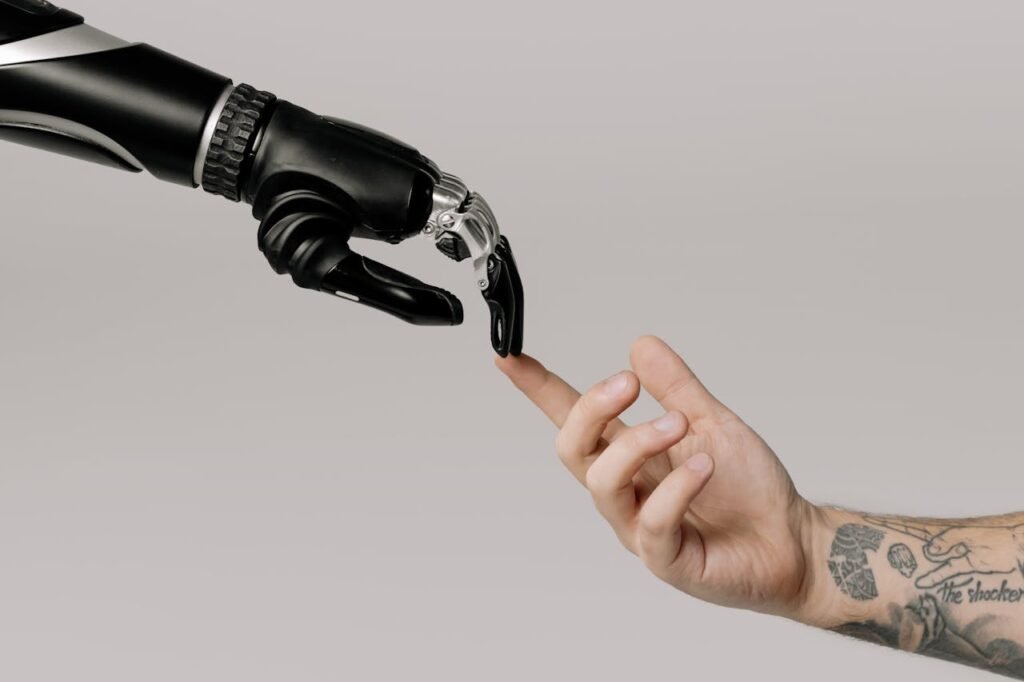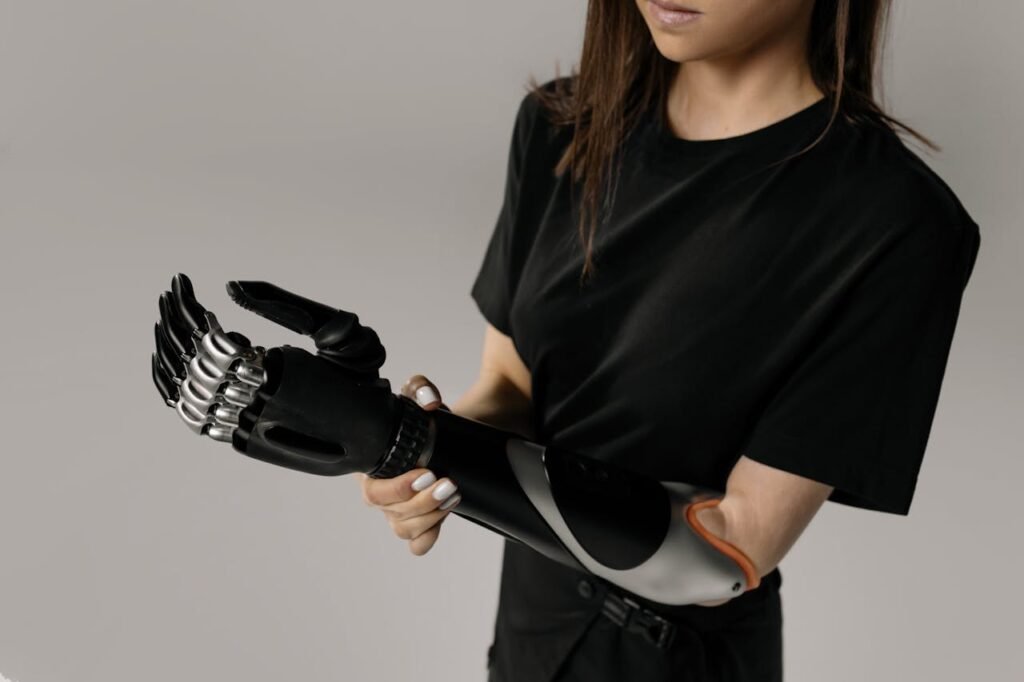As a parent, nothing matters more than your child’s well-being. When a child experiences limb loss or is born with limb differences, finding the right prosthetic can feel like a daunting journey. Pediatric prosthetics are more than medical devices—they are tools that help your child move freely, grow confidently, and embrace their potential.
This guide is here to simplify the process for you. We’ll cover everything you need to know about pediatric prosthetics, from understanding how they work to choosing the right one for your child’s needs. Let’s dive in and explore the possibilities that modern prosthetics offer for children.
Why Pediatric Prosthetics Are Unique
Children are not just small adults, and their prosthetic needs differ significantly from those of adults. A child’s body grows rapidly, their energy levels are high, and their interests and activities change as they develop. These factors require prosthetics that are adaptable, durable, and comfortable.
Growth and Adaptability
One of the biggest challenges in pediatric prosthetics is accommodating a child’s growth. Unlike adult prosthetics, which are designed for long-term use, pediatric models must be regularly adjusted or replaced to fit a growing body.
This means parents need to work closely with their child’s prosthetist to plan for adjustments, ensuring the device always fits well and functions properly.
For manufacturers and clinics, creating modular prosthetics that allow for easy adjustments can make a world of difference. By designing devices that can grow alongside the child, businesses can reduce the financial and logistical burden on families while improving the user experience.
Lightweight and Durable Materials
Children are active explorers, and their prosthetics must keep up with their adventures. Lightweight materials like carbon fiber and titanium are commonly used to reduce fatigue, while still providing the strength needed for climbing, running, and playing.
These materials also make it easier for young children to adapt to their prosthetic, as they don’t feel weighed down by it.
At Robobionics, we use advanced materials to create prosthetics that strike the perfect balance between durability and comfort. This ensures that children can enjoy their favorite activities without limitations.

Types of Pediatric Prosthetics
Choosing the right prosthetic for your child depends on several factors, including the type of limb loss, their age, and their activity level. Broadly, pediatric prosthetics can be divided into functional and cosmetic categories, though many devices combine elements of both.
Functional Prosthetics
Functional prosthetics are designed to restore mobility and assist with daily activities. For children, this might include tasks like holding a pencil, tying shoelaces, or playing sports.
These devices often feature advanced components like multi-articulating fingers or adjustable joints, which help mimic natural movements.
For younger children, body-powered prosthetics are a common choice. These devices use a system of cables and harnesses to move the prosthetic, allowing children to develop coordination and strength as they learn to use it.
For older children and teens, myoelectric prosthetics offer a more advanced option, enabling control through muscle signals for smoother and more precise movements.
Cosmetic Prosthetics
Cosmetic prosthetics focus on appearance, helping children feel confident in social situations. These devices are designed to resemble a natural limb, matching the child’s skin tone and shape.
While they don’t offer the same functionality as other prosthetics, they can play an important role in boosting a child’s self-esteem.
Combining cosmetic features with functional elements can provide the best of both worlds. For instance, a prosthetic hand might be designed to look lifelike while still offering basic gripping functions, giving children both confidence and utility.

The Emotional Journey of Choosing a Pediatric Prosthetic
Beyond the technical and functional aspects, choosing a prosthetic for your child is an emotional process. It’s natural for parents to feel a mix of hope, uncertainty, and even anxiety.
Helping your child adapt to a prosthetic isn’t just about the physical adjustment—it’s also about supporting their emotional well-being and helping them embrace their new limb as a part of their identity.
Supporting Your Child’s Confidence
For children, their sense of self-worth can be closely tied to how they perceive their body. A prosthetic limb can be empowering, but it can also draw attention or questions from peers.
Encouraging open conversations about the prosthetic, explaining how it works, and highlighting its benefits can help your child feel proud rather than self-conscious.
Parents play a vital role in shaping how a child views their prosthetic. Celebrating milestones—like the first time they use their prosthetic to accomplish a task—reinforces positive feelings.
It’s also helpful to introduce your child to role models who use prosthetics, whether through community groups, media, or real-life connections.
Encouraging Peer Support
Many children feel more comfortable when they meet others who share similar experiences. Peer support groups or meet-ups for families navigating limb differences can be invaluable.
These connections help normalize the experience of using a prosthetic, providing children with a sense of belonging and parents with a network of support.
At Robobionics, we actively encourage community-building initiatives, creating spaces where children and parents can share their stories, challenges, and triumphs. These connections often lead to lasting friendships and a greater sense of empowerment for everyone involved.
The Fitting Process: A Collaborative Effort
The process of fitting a pediatric prosthetic is a collaboration between parents, children, and prosthetists. Each stage is crucial for ensuring the device meets the child’s needs and provides both comfort and functionality.
Initial Consultation
The journey begins with a detailed consultation, where the prosthetist assesses the child’s physical condition, activity level, and goals. This is also an opportunity for parents to ask questions and voice concerns.
A good prosthetist will take the time to explain the options in simple terms, ensuring families feel informed and confident about their choices.
For businesses, emphasizing clear communication and empathy during this stage is key. By creating an environment where parents and children feel heard, companies can build trust and ensure a positive experience from the start.

Creating a Custom Fit
No two children are the same, and their prosthetics shouldn’t be either. Creating a custom fit is essential for comfort and effectiveness. This involves taking precise measurements and using advanced technologies, such as 3D scanning or molding, to design a prosthetic that aligns perfectly with the child’s anatomy.
For growing children, prosthetics must be designed with adjustability in mind. Features like extendable pylons or modular components make it easier to adapt the device as the child grows, reducing the need for frequent replacements.
At Robobionics, we use cutting-edge tools to ensure a precise fit, while also incorporating feedback from both parents and children to fine-tune the design.
Trial and Adjustment
Once the prosthetic is ready, the child undergoes a trial period to ensure it functions as intended. During this stage, adjustments may be needed to optimize the fit and alignment.
This is also when children begin learning how to use their prosthetic, with guidance from both the prosthetist and, often, a physical therapist.
For parents, this phase can be both exciting and challenging. It’s important to be patient and supportive as your child navigates the learning curve. Celebrate small victories, and don’t hesitate to reach out to the prosthetist if concerns arise.
Rehabilitation and Training: Building Skills and Strength
Adapting to a pediatric prosthetic is a gradual process that involves physical, mental, and emotional growth. Rehabilitation and training programs play a vital role in helping children master their prosthetic and feel comfortable using it in their daily lives.
Developing Motor Skills
For younger children, learning to use a prosthetic is often like learning a new language—it takes time and practice. Physical therapy focuses on developing the motor skills needed to control the prosthetic effectively. Exercises are designed to be engaging and age-appropriate, ensuring children remain motivated.
For businesses, offering resources like gamified rehabilitation tools can make a significant impact. Interactive programs that teach children to perform tasks using their prosthetic in a playful, enjoyable way help build both skills and confidence.
Adapting to Changing Needs
As children grow, their abilities and interests evolve. A prosthetic that meets a toddler’s needs might not be suitable for a teenager who wants to play sports or pursue creative hobbies. Rehabilitation programs should adapt accordingly, helping children explore new ways to use their prosthetic.
At Robobionics, we believe in lifelong learning and growth. Our team collaborates with families to ensure children have access to the training and support they need at every stage of development.
The Role of Technology in Pediatric Prosthetics
Advancements in technology are reshaping pediatric prosthetics, offering new possibilities for functionality, comfort, and adaptability. These innovations not only improve the prosthetic experience for children but also make it easier for parents and healthcare providers to support them effectively.
Lightweight and Smart Materials
Modern pediatric prosthetics are crafted using lightweight yet durable materials, such as carbon fiber composites and advanced polymers. These materials reduce the physical strain on young users while ensuring the prosthetic can withstand the rigors of active play.
Smart materials that adapt to pressure or temperature changes are also making prosthetics more comfortable for children in varying conditions.
For businesses, investing in research and development of advanced materials can provide a competitive edge. The goal is to create prosthetics that are so comfortable and intuitive that children barely notice they’re wearing them.
Technology-Driven Features
Pediatric prosthetics are increasingly incorporating advanced features like sensors and microprocessors, similar to those found in adult devices. These technologies enable smoother, more natural movements by responding dynamically to the child’s actions.
For instance, a prosthetic arm might detect muscle signals to perform precise hand movements, while a leg prosthetic could adjust its stiffness to accommodate different terrains.

These features help children engage more confidently in a variety of activities, from holding a crayon to running on a playground. At Robobionics, we’ve integrated user-friendly technology into our designs, ensuring children can enjoy the benefits of innovation without feeling overwhelmed.
Choosing the Right Prosthetic Provider
Selecting the right provider is one of the most important decisions parents will make during this journey. The provider should not only offer high-quality prosthetics but also prioritize personalized care and long-term support.
Evaluating Expertise
Look for a provider with proven experience in pediatric prosthetics. Children’s needs are unique, and the design, fitting, and training processes require specialized expertise. Providers should have a team of skilled prosthetists, therapists, and support staff who understand how to work with young users.
Parents should feel comfortable asking questions about the provider’s experience, the types of prosthetics they offer, and how they approach customization. At Robobionics, we pride ourselves on our child-focused approach, combining technical excellence with a compassionate touch.
Prioritizing Accessibility
Accessibility is a key factor for families. The provider should have a local presence or be able to offer convenient services for fittings, adjustments, and repairs. Waiting for weeks to address a concern can be frustrating, particularly for children who are still adapting to their prosthetic.
For businesses, creating a network of clinics or mobile services can significantly improve accessibility. At Robobionics, our localized repair and maintenance services ensure families receive timely and efficient support whenever they need it.
Practical Tips for Parents
Navigating the world of pediatric prosthetics can feel overwhelming at times, but there are strategies parents can use to make the process smoother and more rewarding for both themselves and their child.
Stay Involved in the Process
From the initial consultation to ongoing care, parents should remain actively involved in every step of the journey. Ask questions, share your observations about how the prosthetic is working, and advocate for your child’s needs. The more engaged you are, the better the outcomes will be.
Children often look to their parents for cues about how to approach their prosthetic. By maintaining a positive and proactive attitude, you can help your child feel more confident and comfortable with their device.
Foster a Growth Mindset
Adapting to a prosthetic is a journey of learning and growth. There will be challenges along the way, but each hurdle is an opportunity to build resilience and problem-solving skills.
Encourage your child to view setbacks as part of the process and celebrate their progress, no matter how small.
At Robobionics, we encourage families to embrace this mindset by providing resources and support tailored to every stage of development. Whether it’s through gamified rehabilitation tools or peer mentorship programs, we aim to make the journey as empowering as possible.

Building a Future of Confidence and Independence
The journey of finding and adapting to a pediatric prosthetic is about much more than mobility—it’s about empowering children to explore their world and realize their potential. For parents, the process can be filled with uncertainty, but the right resources, providers, and support systems make all the difference.
Creating a Sense of Ownership
One of the most impactful ways to foster confidence in children using prosthetics is to give them a sense of ownership over their device. Children should feel that their prosthetic isn’t something imposed upon them but rather a part of who they are.
Customization options, such as choosing colors, designs, or even creative elements like superhero-inspired aesthetics, can make the prosthetic feel personal and exciting.
For businesses, this means going beyond the standard functionality and offering customizable features that reflect a child’s personality and preferences. When children take pride in their prosthetic, they’re more likely to embrace it fully and engage in activities with enthusiasm.
Encouraging Exploration Through Play
Play is an essential part of childhood—it’s how children learn about the world and develop crucial skills. A prosthetic should enhance, not hinder, a child’s ability to play.
This means designing devices that are not only functional but also capable of withstanding the wear and tear of active use. From climbing trees to riding bicycles, a well-designed prosthetic should support the child’s natural curiosity and sense of adventure.
Businesses can contribute by designing prosthetics with durability and flexibility in mind. At Robobionics, we create devices that balance lightweight materials with robust construction, ensuring they can handle the demands of an active child while remaining comfortable and easy to use.
Supporting Social Integration
A child’s confidence is closely tied to their social experiences. Prosthetics can sometimes attract attention or questions from peers, which can be a source of anxiety. Helping children navigate these interactions with confidence is critical for their emotional well-being.
Parents and caregivers can teach children how to explain their prosthetic to others in simple, positive terms, turning curiosity into an opportunity for connection.
For businesses, providing resources to parents and children on how to handle social situations can be incredibly valuable. This might include creating booklets, videos, or workshops that focus on communication skills and fostering inclusivity.
By positioning the prosthetic as a source of empowerment rather than difference, companies can help reshape the narrative around limb differences.
Building Lifelong Skills
Prosthetics aren’t just about mobility—they’re tools for building lifelong skills. Whether it’s learning to tie shoelaces, mastering handwriting, or participating in team sports, the right prosthetic can empower children to tackle challenges and develop resilience.
Businesses can amplify this by integrating training and rehabilitation programs that focus on practical skill-building.
For example, gamified exercises that teach children how to grip objects, balance, or coordinate movements can make the learning process enjoyable and engaging. This not only accelerates adaptation but also helps children see their prosthetic as a positive addition to their life.

Partnering with Families
A child’s confidence and independence are cultivated through collaboration between the child, their family, and the prosthetic provider. Businesses that prioritize family involvement can create stronger connections and deliver more impactful solutions.
Engaging parents in the design and fitting process, providing accessible training materials, and offering regular follow-ups ensure that families feel supported throughout their journey.
At Robobionics, we take a family-first approach, recognizing that parents and caregivers play a vital role in their child’s success. By equipping families with knowledge, tools, and resources, we empower them to be active participants in building their child’s confidence and independence.
Redefining Possibilities
Ultimately, the goal of pediatric prosthetics is to help children realize that their potential is limitless. Businesses in this space must focus not just on restoring what’s been lost but on opening new doors of opportunity.
By delivering innovative, adaptable, and user-friendly solutions, companies can help children—and their families—redefine what’s possible, ensuring that the prosthetic is not just a device but a gateway to a brighter, more empowered future.
Conclusion
Choosing the right pediatric prosthetic is not just a medical decision—it’s a deeply personal journey that shapes your child’s confidence, independence, and overall quality of life.
While the process may seem daunting at first, the possibilities that modern prosthetics offer are nothing short of extraordinary. With the right guidance, support, and technology, your child can move, play, and grow just like any other child.
For parents, this journey is about more than just selecting a device—it’s about fostering resilience and empowering your child to embrace their uniqueness. By staying informed, working closely with a trusted provider, and focusing on your child’s emotional and physical needs, you can help them thrive.



